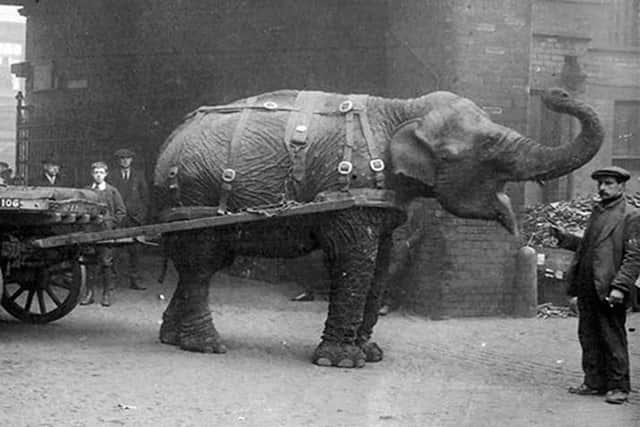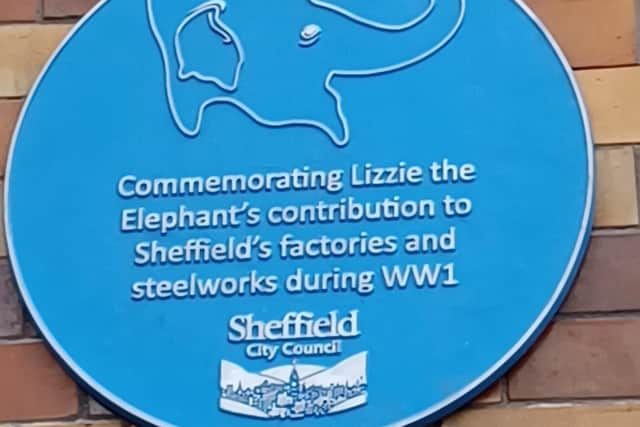Lizzie the Elephant: Remarkable story of circus animal whose wartime heroics made her a celebrity
She was the most unlikely of wartime heroes, swapping her life performing circus tricks for one spent trudging the streets of Sheffield hauling vital munitions. Now, more than a century later, Lizzie the Elephant has finally been given the recognition she deserves - thanks to one schoolgirl's dedication.
Lizzie came to Sheffield as part of William Sedgwick's Menagerie, a travelling circus which wintered at the Wicker Arches just outside the city centre.
Advertisement
Hide AdAdvertisement
Hide AdDuring the First World War, with the horses that usually pulled carts around Sheffield sent off to the battlefields, she was leased by Thomas Ward of Wards Brewery to help transport machinery, scrap metal and munitions around the city.


Lizzie could do the work of three horses and her crucial contribution to the war effort earned her celebrity status.
She became a well-known and much-loved figure on the streets in and around Kelham Island, where she was most often seen, with her specially made leather boots to protect her feet from scrap metal lying around on the ground.
All that work meant she had a voracious appetite and she earned a reputation for helping herself to food, with reports of her snaffling an apple from a passerby's pocket and even munchin a schoolboy's hat.
Advertisement
Hide AdAdvertisement
Hide AdLizzie was not the only exotic animal pressed into wartime service, with camels also used to pull heavy loads around Sheffield, but she was the one who really endeared herself to city folk back then.


She has been the subject of books and museum displays over the years and even inspired the Herd of Sheffield elephant sculpture trail, but as time passed her legendary exploits were in danger of being forgotten.
That was until young Lilly Holmes, of Killamarsh, became involved. After learning about Lizzie and carrying out her own research during the Covid lockdowns, she set about raising the money for a blue plaque commemorating Lizzie's heroic work.
Her fundraising efforts were successful and the plaque at the Hancock and Lang building on Lady’s Bridge, where Lizzie was stabled during the war, has been officially unveiled by Sheffield Lord Mayor Councillor Colin Ross. Lilly was praised by Patrick Meleady, manager of Pitsmoor Adventure Playground, for bringing Lizzie 'out of the archives and giving her centre stage once more, in an area of the city of Sheffield where she once toiled away on a daily basis'.
Advertisement
Hide AdAdvertisement
Hide AdPatrick said Lilly's efforts and those of other young people, including members of Sheffield Young Cooperators and the Sheffield Young People’s Equality Group, led by Molly Hanley, who successfully campaigned for a plaque honouring the city’s Suffragettes and their shop on Chapel Walk, were an inspiration to us all.
He said: "The efforts of all of these children and young people bring home to us all the importance of remembrance, as an act of essential recall, of honouring the memories of those who have gone before - people and animals - victims, resistance fighters, survivors and contributors as well as the need to never repeat harms done. Their self-driven memorialisation is helping to repair our society."